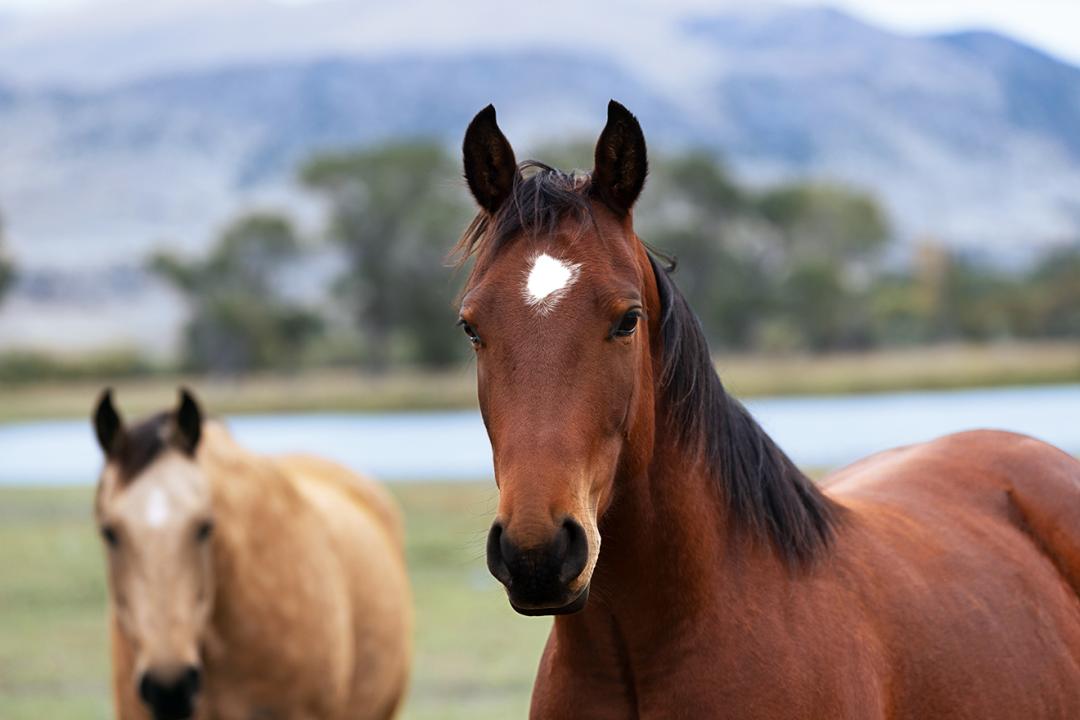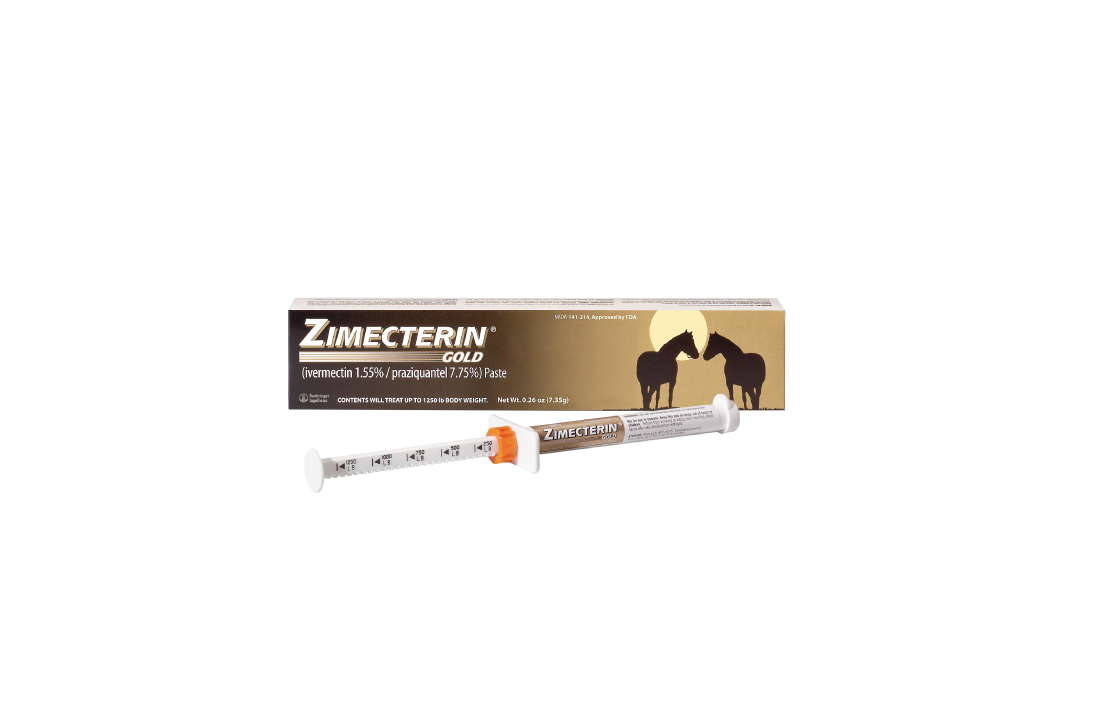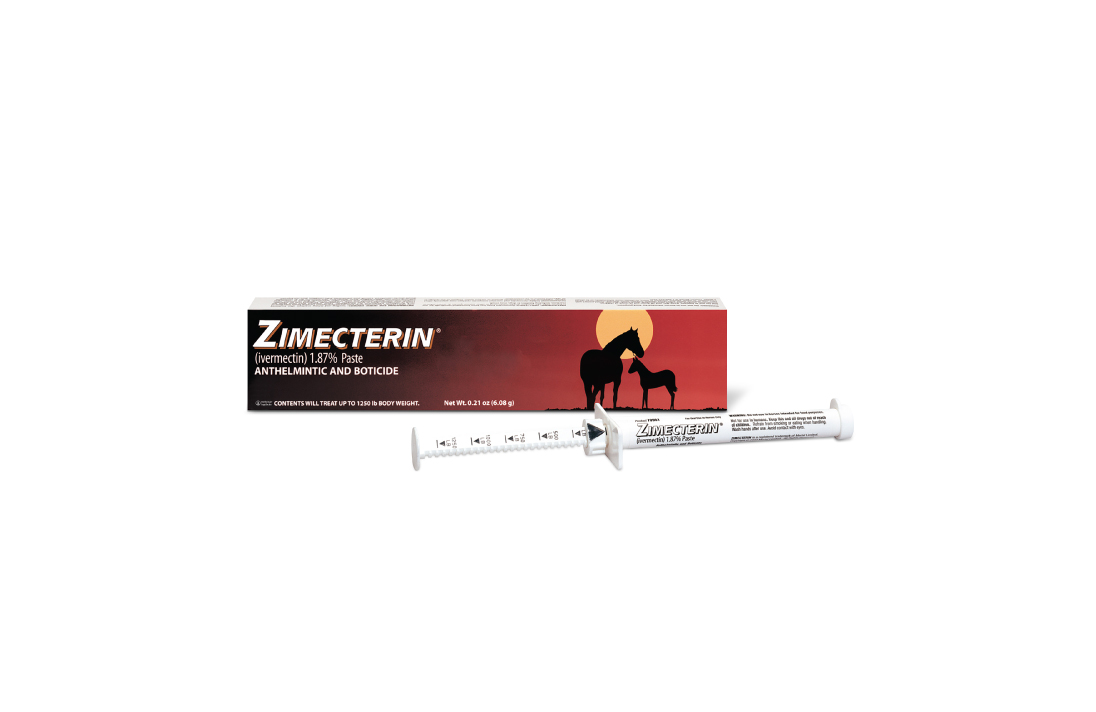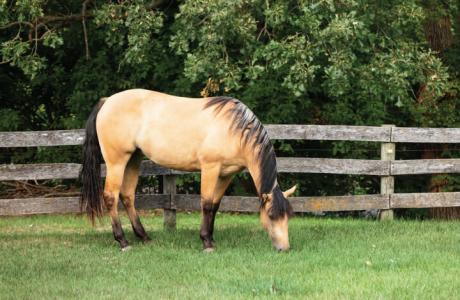Parasitic infections are an unavoidable reality for horses, but they can be easily managed with regular deworming care.


Deworming: What to Know
Horses can become infected with internal parasites like tapeworms, roundworms, small strongyles and other parasites. While this is an unavoidable and natural occurrence, parasites can be easily managed through administration of dewormers.
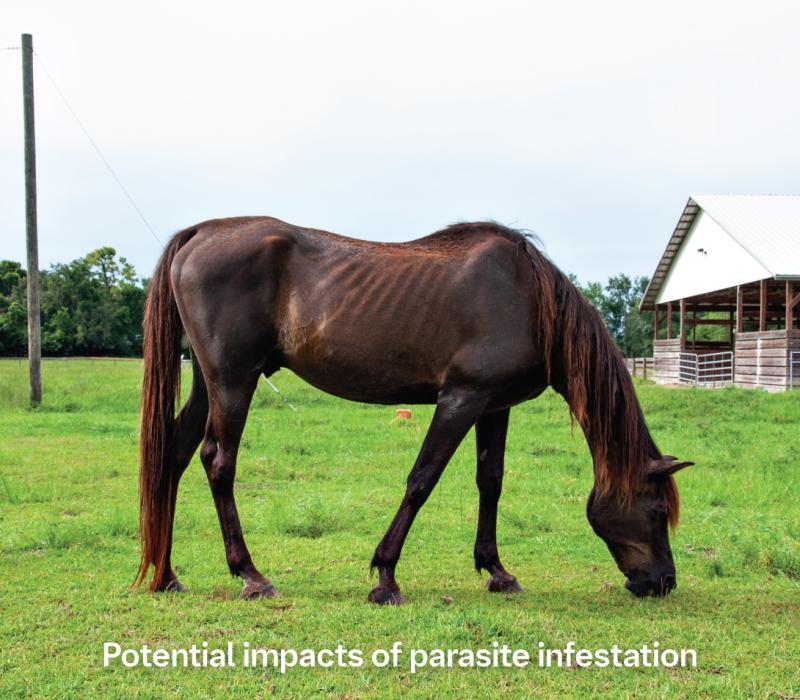

Recognize the Signs
Horses naturally tolerate a small number of parasites, and it’s impossible for horses to be completely parasite-free. Uncontrolled parasitic infections can result in clinical issues, especially in foals, yearlings, older, pregnant and immunocompromised horses.
Signs of Parasite Complications
- Weight loss
- Diarrhea
- Colic
- Poor growth
- Coarse and dull coats
- Potbellies
- Excessive tail scratching
If you observe any of these clinical signs, consult with your veterinarian for additional testing and deworming protocol recommendations.
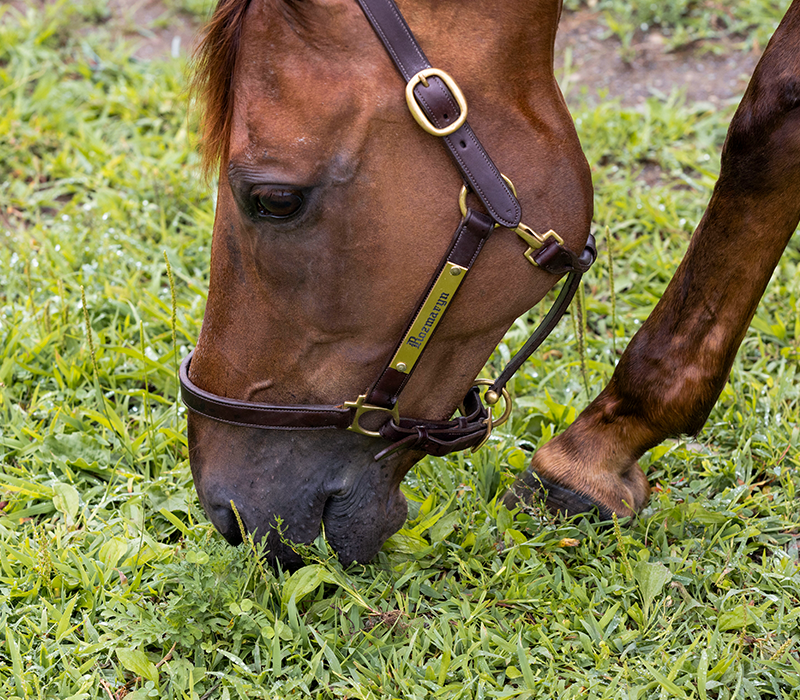

Stay One Step Ahead of Parasites With Proper Management
To combat parasites, prioritize pasture management to ensure your horse is safely grazing.
- Remove manure daily from stalls and run-ins, and weekly from paddocks
- Be sure pastures and paddocks are well-drained and not overpopulated
- Compost manure rather than spreading it on fields where horses graze
- Use a feeder for hay and grain
- Keep water troughs and feed bins clean
While parasite infections are a common occurrence in horses, you can control them through regular deworming. To choose the right dewormer for your horse, consider:
- Your veterinarian’s recommendation
- Age of the horse
Time of year
Related Products
ZIMECTERIN GOLD IMPORTANT SAFETY INFORMATION: ZIMECTERIN GOLD has not been tested in foals younger than 2 months of age, mares at or near the time of breeding, pregnant or lactating mares, and breeding stallions. There have been rare reports of swelling and irritation of the mouth, lips, and tongue following administration of ZIMECTERIN GOLD. This product should not be used in other animal species, as severe adverse reactions, including fatalities in dogs, may result. Not for use in humans. For more information, click here for full prescribing information.
ZIMECTERIN IMPORTANT SAFETY INFORMATION: Not for use in humans. Keep this and all drugs out of the reach of children. Do not use in other animal species as severe adverse reactions, including fatalities in dogs, may result. Ivermectin and excreted ivermectin residues may adversely affect aquatic organisms. Do not contaminate ground or surface water. Dispose of the syringe in an approved landfill or by incineration. For more information, click here to see full prescribing information.
Choosing the Right Dewormer
You have options when it comes to a horse dewormer paste. Talk to your veterinarian to decide if ZIMECTERIN or ZIMECTERIN GOLD is right for your horse.
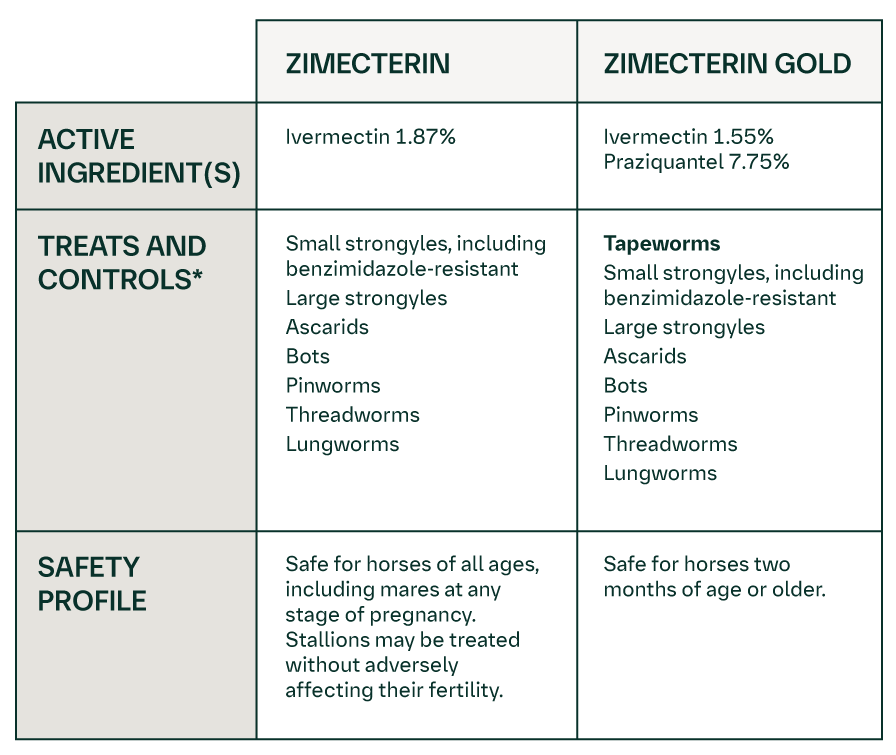
For a full list of parasite species and stages, see the ZIMECTERIN and ZIMECTERIN GOLD product inserts.
Related Articles
1 ZIMECTERIN GOLD Product Label
ZIMECTERIN® is a registered trademark of Boehringer Ingelheim Animal Health France, used under license. ©2025 Boehringer Ingelheim Health USA Inc., Duluth, GA. All rights reserved. US-EQU-0099-2024
